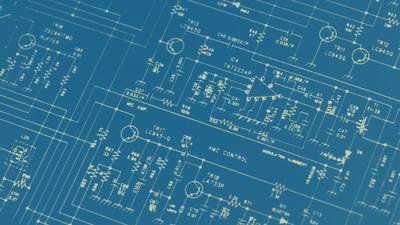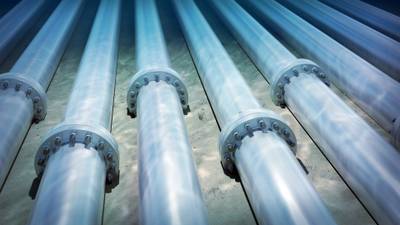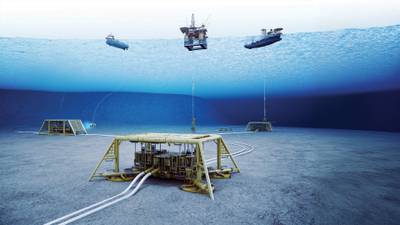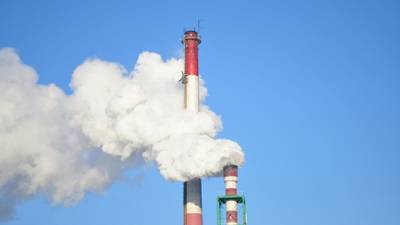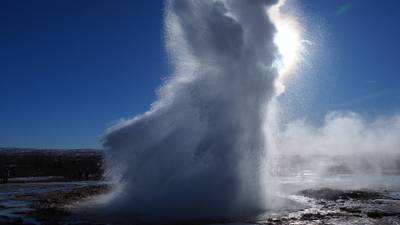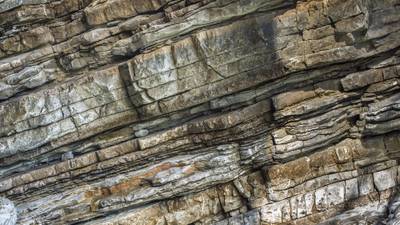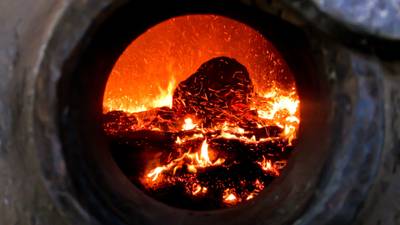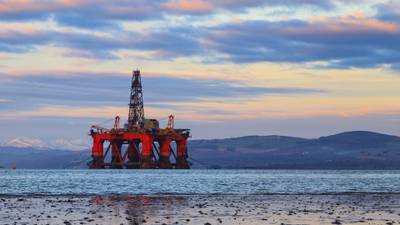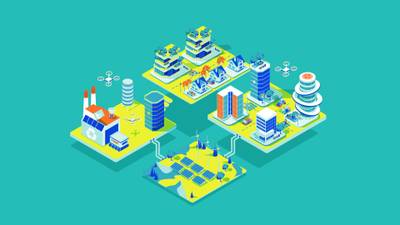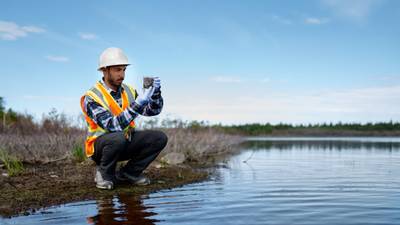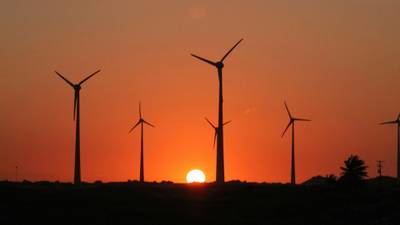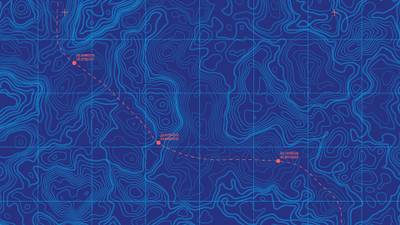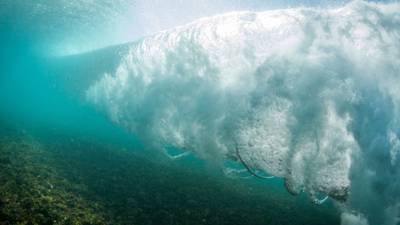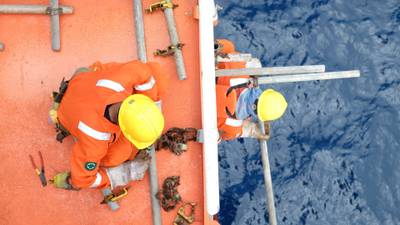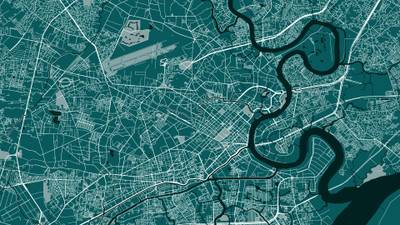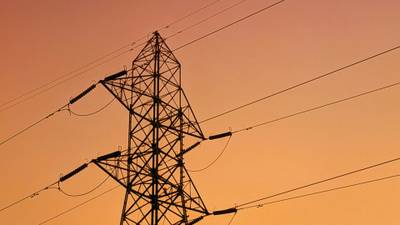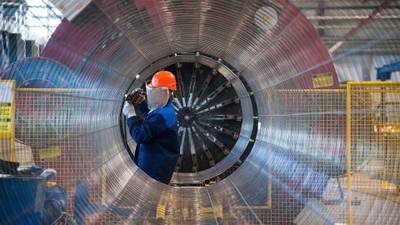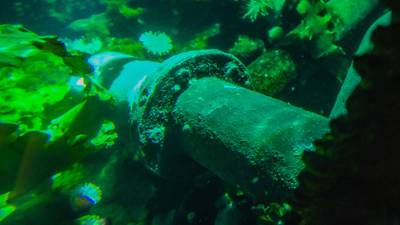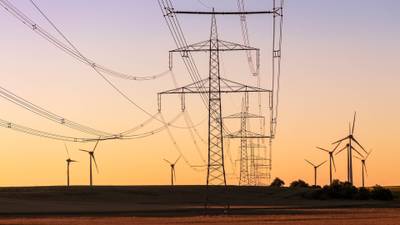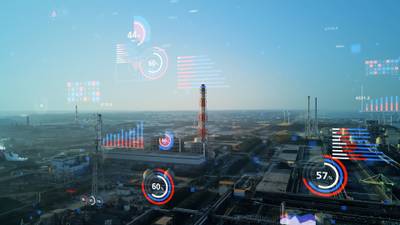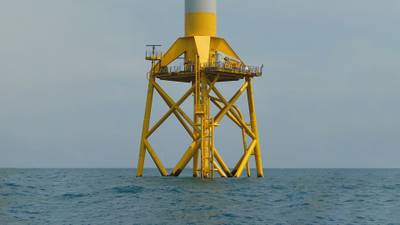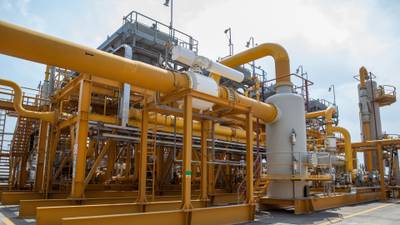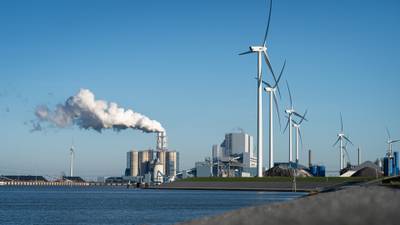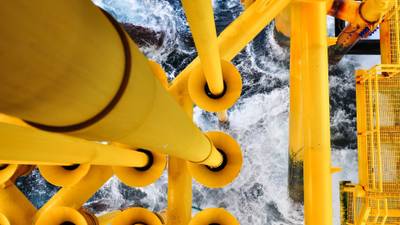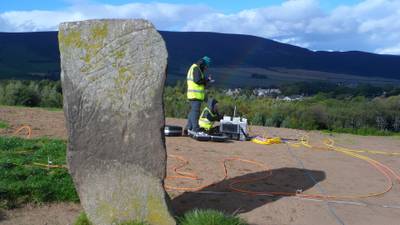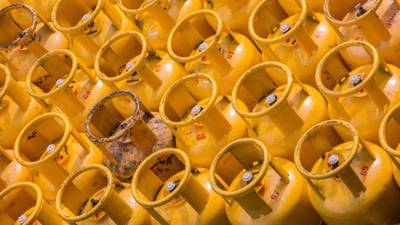Join a CCUS course you can study anywhere, 100% online.
Ready yourself for a career in carbon capture, utilisation and storage (CCUS) with University of Aberdeen academics, engineers, and industry experts.
In this Masters-level online short course, you’ll develop a detailed understanding of carbon capture, transport, and CO2 storage technologies.
With guidance from professionals working in the CCUS sector, you’ll learn about:
- the theory and practical application of carbon capture technologies
- methods of carbon capture, transportation, and injection
- carrying out basic calculations and assessment of CCUS projects
- CO2 flow assurance issues, and
- the safe underground storage of CO2 in geological formations, aquifers, and depleted oil and gas reservoirs.
Flexible carbon capture training
This flexible online course is designed to fit around full-time work. You can learn with us anywhere in the world, with no student visa required.
Who can join this carbon capture and storage course?
This distance-learning course is ideal for:
- graduates from a broad range of disciplines (STEM, law, social sciences)
- oil and gas sector workers interested in energy transition careers
- councils and public stakeholders keen to expand their energy transition projects.

Build credits towards a Masters degree
This online course is part of:
- MSc Energy Transition Systems and Technologies
- MSc Oil and Gas Engineering
- MSc Subsurface Energy Engineering
You can use the credits you earn on this short course towards any of these MSc qualifications.
What you’ll study
In this course, you’ll study the challenges of carbon capture, utilisation and storage (CCUS) and possible technological solutions.
You’ll explore carbon capture technologies and methods in terms of their technical, economic and environmental criteria, as well as their stage of development.
You’ll examine case studies and real-world examples of operating pilot plants.
You’ll also build your skills in communication and outreach to diverse audiences on the relevance and impact of the energy transition.
You’ll cover topics including:
- Overview of existing Green House Gas (GHG) emissions issues
- International and UK GHG-reduction targets, strategies, and policies
- Life Cycle Analysis, with emphasis on GHG emissions, CCS, and CCUS options
- Introduction to CCS: global emissions, climate change, evidence of climate change
- Carbon capture technologies: post-combustion, pre-combustion, oxy-combustion
- Carbon capture methods: adsorption, absorption, membrane and cryogenic separation processes
- CO2 transport and subsurface injection: thermodynamics and kinetics of CO2 transportation, respective issues (gas hydrates), and their remedial measures
- Underground CO2 sequestration, including CO2 sequestration as hydrates
- CO2 storage, including storage in aquifers and depleted oil and gas reservoirs
- Carbon utilisation technologies: latest advances, promising technologies and their challenges.
By the end of this course, you’ll be able to...
-
Understand the different technological options and challenges of CCUS.
-
Analyse and compare the physical principles behind different CCUS options and their respective fit in the implementation of CCUS systems.
-
Identify critical aspects of different carbon capture technologies.
-
Discuss and explain the need for CCUS and the various carbon capture technologies and processes.
-
Evaluate carbon capture systems accounting for flow-assurance-related issues when transporting CO2.
-
Evaluate CO2 utilisation and underground storage of CO2 in various geologic and oceanic systems.
-
Calculate carbon capture and utilisation CO2 storage volumes in underground storage formations.
-
Communicate complex information to a diverse audience, including technical experts and the wider public.
Choose the University of Aberdeen for online carbon capture training

Earn as you learn
We fit around full-time work, so you can build qualifications while you keep earning a salary.

You’re in expert hands
We’ve been training energy professionals for decades and delivering online learning for over 20 years.

20% alumni discount
University of Aberdeen alumni get 20% off fees for this online course.
How you’ll study
Online learning
This distance-learning carbon capture and storage course is delivered flexibly, 100% online.
You can learn with us anywhere, no student visa required, and manage your study hours to suit you.
Your teaching
This course is taught at Masters level.
Teaching is delivered through MyAberdeen, our online Virtual Learning Environment (VLE). It holds all the materials, tools and support you’ll need in your studies. Take a look around MyAberdeen.
You can access your learning materials on computer, smartphone and laptop, 24 hours a day. You’ll find a range of resources available, including:
- video lectures
- reading materials
- discussion boards with your tutor and peers
- the online resources of our award-winning Sir Duncan Rice Library.
Industry input
Through invited talks delivered by working technological professionals in the CCUS industry, you’ll learn directly from industrial experts in the energy transition workstream.
Additionally, this course is part of MSc Energy Transition Systems and Technologies. This MSc features an Industrial Advisory Board, formed by representatives of companies in the energy sector who ensure your course content is current and addresses industry needs.
Your tutors
This carbon capture course is delivered by our School of Engineering.
You’ll learn from academics who are active researchers in the CCUS area, with expertise in carbon capture, flow assurance and subsurface CO2 storage.

Dr Prashant Jadhawar
Prashant, your course coordinator, is a distinguished Lecturer with over 22 years’ combined experience in academia and the oil and gas industry.
His expertise spans enhanced oil and gas recovery, CO2 sequestration, and reservoir modelling. Prashant has contributed significantly to the field, with numerous publications and talks. He’s actively engaged in research on hydrogen innovation, subsurface CO2 sequestration and storage, funded currently by the Net Zero Technology Centre.
Prashant is also active in various committees of the Society of Petroleum Engineers (SPE) Aberdeen Section, alongside collaborating with industry professionals.
View Prashant’s profile
Dr Waheed Afzal
Waheed is a Chartered Chemical Engineer, Chartered Scientist, and Fellow of the Institution of Chemical Engineers.
Waheed’s research focuses on developing sustainable solutions to environmental challenges, including carbon capture and utilisation.
He also heads our Masters degrees in Advanced Chemical Engineering and Process Safety Engineering.
View Waheed’s profileThis course is assessed online.
You’ll be assessed throughout your studies via:
- your coursework (worth 50% of your final course grade), and
- an online open-book exam (worth 50%).
The course totals approximately 150 hours of study and assessment time. That’s around 10 – 15 hours per week.
This is an indicative guide to the time required for a typical student at this level to achieve the learning outcomes. This includes time for independent study, as well as teaching and assessments.
You can largely set your own study hours each week to cover the materials. MyAberdeen is available 24/7, so you can log in and study when it suits you.
Activities with deadlines
There will be some activities scheduled at fixed times, such as assessments with deadlines, or meetings with your tutor. But otherwise, you can access and work through the course at your convenience.
Our first-class support structure will ensure that you aren’t alone in your studies. You’ll have contact with your coordinator via email, MyAberdeen and Microsoft Teams. You can use social media and discussion boards to chat with your fellow students too.
We provide a wide range of services to support you in your studies and beyond:
- Careers and Employability Service
- Disability support
- IT support
- Library support
- Student Support Service – help with finances, wellbeing, and non-academic issues
- Student Learning Service – study skills support and advice
- Aberdeen University Students’ Association (AUSA) – run by students for students
- Toolkit – clever apps and free training that can make your study life easier
Wherever you are in the world, you’ll feel part of our very special Aberdeen learning community.
Where this will take you
Towards a Masters
You’ll earn 15 credits at Masters level (SCQF Level 11) with this course. You can use these credits towards our online:
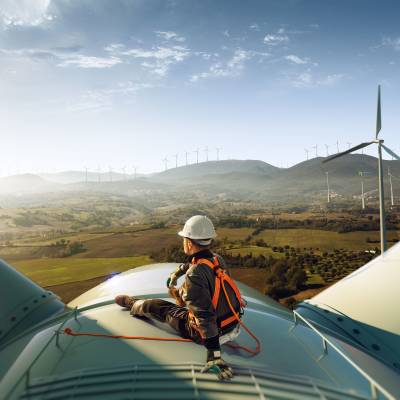
Masters in Energy Transition Systems and Technologies
Join an online MSc that’s training the next generation of systems engineers. Help our planet transition from oil and gas to net-zero, with a degree you can study online, part-time.
View MSc Energy Transition Systems and Technologies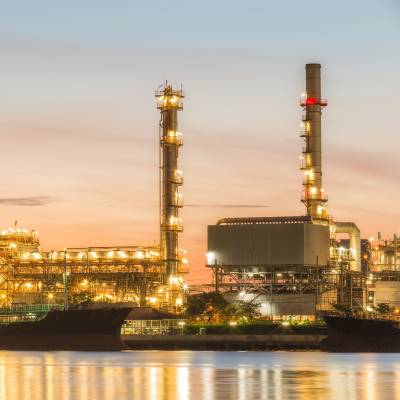
Masters in Oil and Gas Engineering
Join an accredited online Masters degree delivered from the Energy Capital of Europe. Master the skills and technologies you need to pursue a career in the upstream and downstream oil and gas industry.
View MSc Oil and Gas Engineering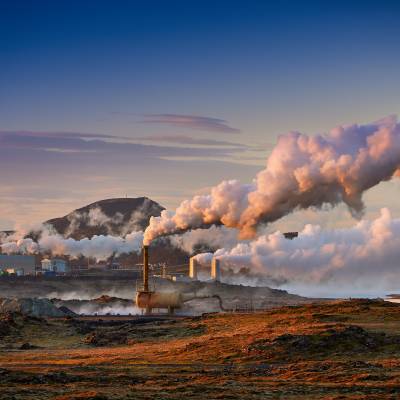
Masters in Subsurface Energy Engineering
Develop the advanced skills in energy engineering, geo-energy resources and storage that you need to work with subsurface energy systems.
View MSc Subsurface Energy EngineeringBuild your learning with more energy transition courses
We offer a range of online energy transition courses you can use to build your skills and qualifications.
All these short courses are designed to fit around full-time work. Most carry credits that build up into postgraduate qualifications, including Masters degrees:
Carbon capture training for energy transition careers
In this course, you’ll earn multidisciplinary skills in the areas of energy transition related to carbon capture, utilisation, transportation and storage.
From complex calculations to decision making, you can apply your new knowledge and expertise within a range of careers, including:
- engineering
- management
- energy consultancy
- finance
- academia and education
- research and development.
Carbon storage career opportunities
Carbon capture and storage is vital to the UK reaching net zero by 2050, with a growing need for CCUS skills.
Twenty-one licenses have been issued in the UK’s first-ever carbon storage licensing round, off the coast of Aberdeen and around the UK.
These locations could store up to 30 million tonnes of CO2 per year by 2030, almost 10% of UK annual emissions. Read more about carbon storage licensing and developments in the UK.

Free career support
Access our free careers service while you study.
- 1:1 appointments
- CV checks
- Interview prep
- Job opportunities
Entry requirements
Entry requirements
We welcome students from all over the world.
This course has no formal entry requirements. You do not need to provide proof of your qualifications.
But you do need to check the entry guidance above to understand the level of teaching delivered, to decide if this course is right for you.
If you do not have qualifications from the UK, check the equivalent teaching level for your country.
Visa requirements
You do not need a student visa to study online with us.
English language requirements
Teaching is delivered in English.
You do not have to provide proof of your English language skills to join this course. But we want to make sure that you can use English well enough to study successfully.
Recommended level of English
For this course, we recommend the following level of English language proficiency.
These are our Postgraduate Standard requirements, and these are minimum scores.
IELTS Academic, IELTS UKVI Academic, or IELTS Online (not IELTS Indicator or IELTS General Training)
- 6.5 overall
- 5.5 for listening, reading and speaking
- 6.0 for writing
TOEFL iBT or TOEFL iBT Home Edition
- 90 overall
- 17 for listening
- 18 for reading
- 20 for speaking
- 21 for writing
- TOEFL DI code is 0818
Cambridge English: B2 First, C1 Advanced, or C2 Proficiency
- 176 overall
- 162 for listening, reading and speaking
- 169 for writing
LanguageCert Academic / LanguageCert Academic SELT
- 70 overall
- 60 for listening, reading and speaking
- 65 for writing
Oxford ELLT Digital – English Language Level Test Online
- 7.0 overall
- 5.0 for listening, reading and speaking
- 6.0 for writing
PTE Academic (online test not accepted)
- 62 overall
- 59 for listening, reading, speaking and writing
Skills for English: SELT
- B2 pass with merit
Duolingo – tests taken from 1 July 2024 onward
- 120 overall
- 95 for listening, reading and speaking
- 105 for writing
University of Aberdeen English Pre-sessional Programme (PSE)
- Pass
- Valid for one year. Refresher can be offered if out of date
Pre-sessional academic English preparation programmes undertaken at other UK universities
- Pass at an equivalent of 6.5 (C1)
- B2 in all four skills
- Certification must be within one year prior to the start of your course
For full information about language requirements, see our English Language Requirements page.
You will need access to:
A computer (PC, laptop or Mac) with an up-to-date operating system
Most teaching materials are smartphone- and tablet-friendly. But we recommend a proper laptop or desktop for completing assignments comfortably.
Reliable internet access
We recommend:
- a wired connection
- a minimum download speed of 2 Mbps so you can take part fully in live sessions.
Speakers or headphones
- We recommend a headset with built-in microphone and earphones if you’re likely to study in an environment with background noise.
- A webcam is optional, but you may like to use one for some interactive sessions.
Software
We’ll give you access to Office365 applications. This means you can use online versions of Microsoft Word, Excel, PowerPoint and OneDrive and install these programs on up to five personal devices.
If your course requires specialist software, we’ll provide you with access to this and a licence that lasts throughout your studies.
See our detailed IT requirements for more information.
When you study with us, you can expect a first-class support structure so that you’re never alone in your studies.
But learning online does mean you have to motivate yourself and manage your own time.
Your most important commitment will be time – the time to work through, reflect on and understand your teaching materials.
Before you start a course that involves a high degree of independent study, we recommend looking at the time you will be able to devote to your studies each week:
- Be realistic
- Create a weekly schedule as a guide
If you have any questions about studying online, get in touch with our friendly team. We’re here to help.
Fee payment
Your course fee needs to be paid in full before you start your course.
We accept payment via Visa Debit, Visa Credit and Mastercard.
Ways to save
You may be able to get help funding this course via:
- discounts – if any discounts are available for this course, they’ll appear in the section below
- employer sponsorship – we accept full and partial fee payments from sponsors.
Find out more about funding options.
Student card
All our students are entitled to a University of Aberdeen student card. This gives you access to a range of student discounts around the city and online.
Learning resources
Access to all the books and resources you need are included in your tuition fee. They’ll be made available to you online and you do not have to buy your own copies.
Printing
You may wish to set aside a small budget for printing, depending on how you like to work.
This course has no formal entry requirements. You decide if it’s suitable for you.
The course is delivered at Masters level. At this level, you’d usually have at least:
- a 2:1 UK honours degree (or equivalent) in Engineering, Geoscience, Physics or Chemistry, or
- three years’ relevant experience that supports this level of study.

